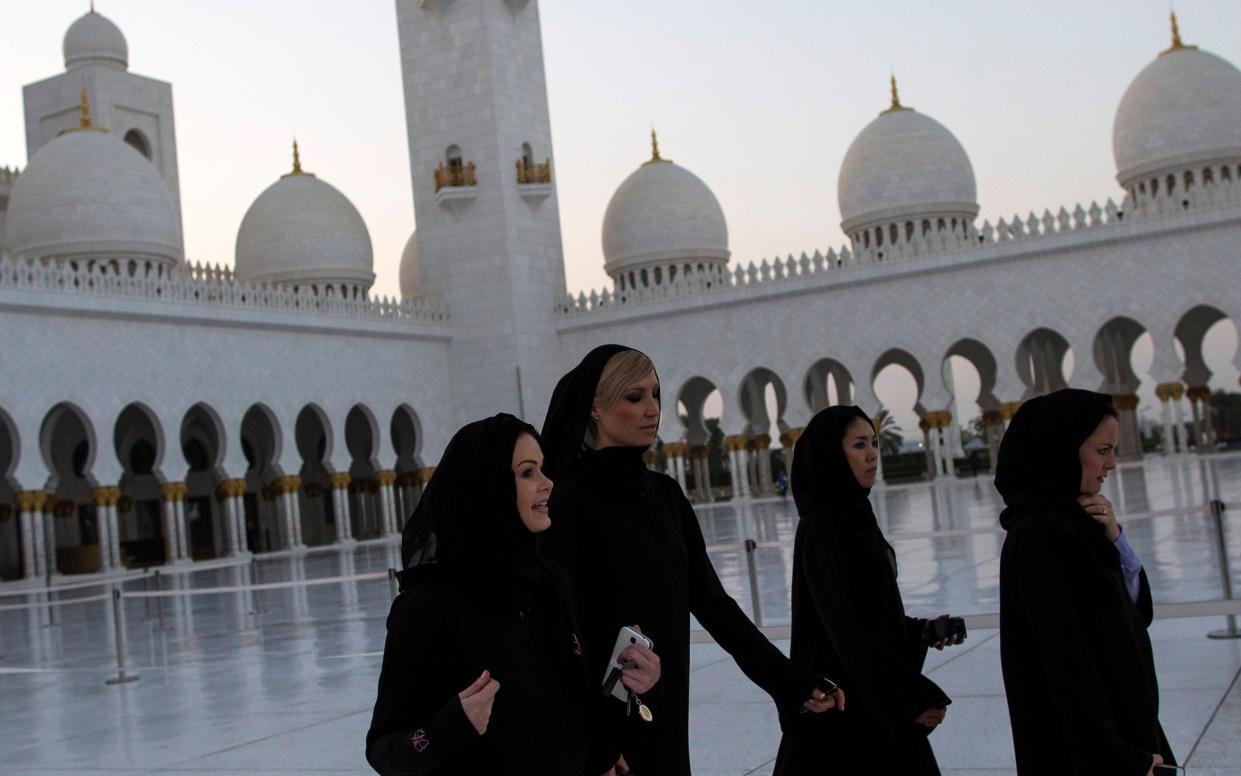I would not be doing my job if I kept quiet about any Abu Dhabi-backed takeover of The Telegraph

- Oops!Something went wrong.Please try again later.
I came to work for this paper because I am allowed to say what I want to say. I was given reassurances that this would be the case and I am happy to report that it has been. That does not mean readers have to agree with me – many of you patently don’t, and tell me so, in frank and fearless fashion – but what matters is this free exchange. This, you may think, is a given in British journalism, but I am afraid it isn’t.
At my former newspaper, there was a range of subjects that I and other mostly female journalists were not allowed to write about: what was going on at the Gender Identity Development Service clinic at the Tavistock, the scandal of Mermaids, the takeover of public institutions by Stonewall, the erasing of the word women from public language.
In short, instead of having a debate about gender ideology or the attack on women’s rights that some trans activism involved, The Guardian just put its fingers in its ears and for some time refused any discussion.
How did The Guardian enforce such censorship? Not by explicitly banning anything but by omission. It simply did not report on stories that ran contrary to its world view.
This is why I worry about those now in the process of buying this paper. The Abu Dhabi-backed takeover of The Telegraph has caused all sorts of people to question whether this is right and proper. This is not a matter of patriotism or foreign ownership – in terms of newspaper proprietors, that ship has long sailed.
It is a more fundamental question; should this newspaper be owned by a country (United Arab Emirates) that itself has no press freedom? How will that work? Will readers trust its editorial independence? Will writers be able to pursue stories that could be embarrassing for its owners? After my experience at The Guardian, I can see a situation where certain awkward things are just not written about.
It is one thing for Sheikh Mansour bin Zayed al-Nahyan to own a football club (Manchester City), but a newspaper is another ball game altogether. Journalists working in the UAE are not free at all and have to self-censor. Its domestic media is tightly controlled, even online. Any criticism of the regime means shutdown.
Emirati culture is entirely different to ours in profound ways. Associate editor Camilla Tominey has rightly pointed out the number of strong female voices in this paper. In the UAE, women are subject to guardianship and are unequal under the law. Judges can determine if it is permissible for women to leave the house and work. Emirati citizenship is not given automatically to the children of Emirati women. They can be flogged and stoned via the Sharia courts for adultery or premarital sex. Marital rape is not criminalised and so-called ‘honour killings’ can go unpunished.
This you may say is irrelevant because we already do a lot of business with the UAE and the country is more liberal than other Arab states, and anyway isn’t Dubai fun for a blingy mini-break? Heading up the bid for RedBird IMI (an Abu Dhabi-backed investment fund), is Jeff Zucker, a former head of CNN, who says that “nothing is more important to me than editorial independence”. Zucker, like all interested parties, sees great potential in taking The Telegraph into the US market and I hope his reassurances are real.
There is no question that the Gulf states are key global players both in relation to Russia and China and now with Israel, with many quietly wanting to see the threat of Hamas destroyed. It is obvious we should maintain good relations with them. But having a British newspaper owned by them could compromise our ability to do the kinds of journalism that needs doing.
Whether this is about Princess Latifa bint Mohammed al-Maktoum, daughter of the ruler of Dubai, who claimed she was being held against her will, or about the dangerously high pollution levels that are reported to be making migrant workers ill in Dubai, it is imperative such stories are covered.
The fear is that editorial independence might only go so far as no criticism of the regime is allowed within the UAE itself. The point is that truth is nearly always offensive to someone or other and as that great man, Salman Rushdie, once said: “What is freedom of expression? Without the freedom to offend, it ceases to exist”.
In these days of swirling disinformation and the implosion of the echo chambers of X, it is ever more important that trusted news sources are able to dig and writers are able to say what they want to say. Of course, there will be disagreement, but that is much healthier than censorship by omission, which is what I am afraid may happen with this new ownership.
It would just be easier not to say certain things; to keep quiet. But it’s too late now, I’ve said them. I would not be doing my job as a writer if I didn’t.
Many of our readers have raised concerns over the potential sale of Telegraph Media Group to the Abu Dhabi-linked Redbird IMI. While Ofcom carries out its investigation we are inviting the submission of comments on the process. Email salecomments@telegraph.co.uk to have your say

